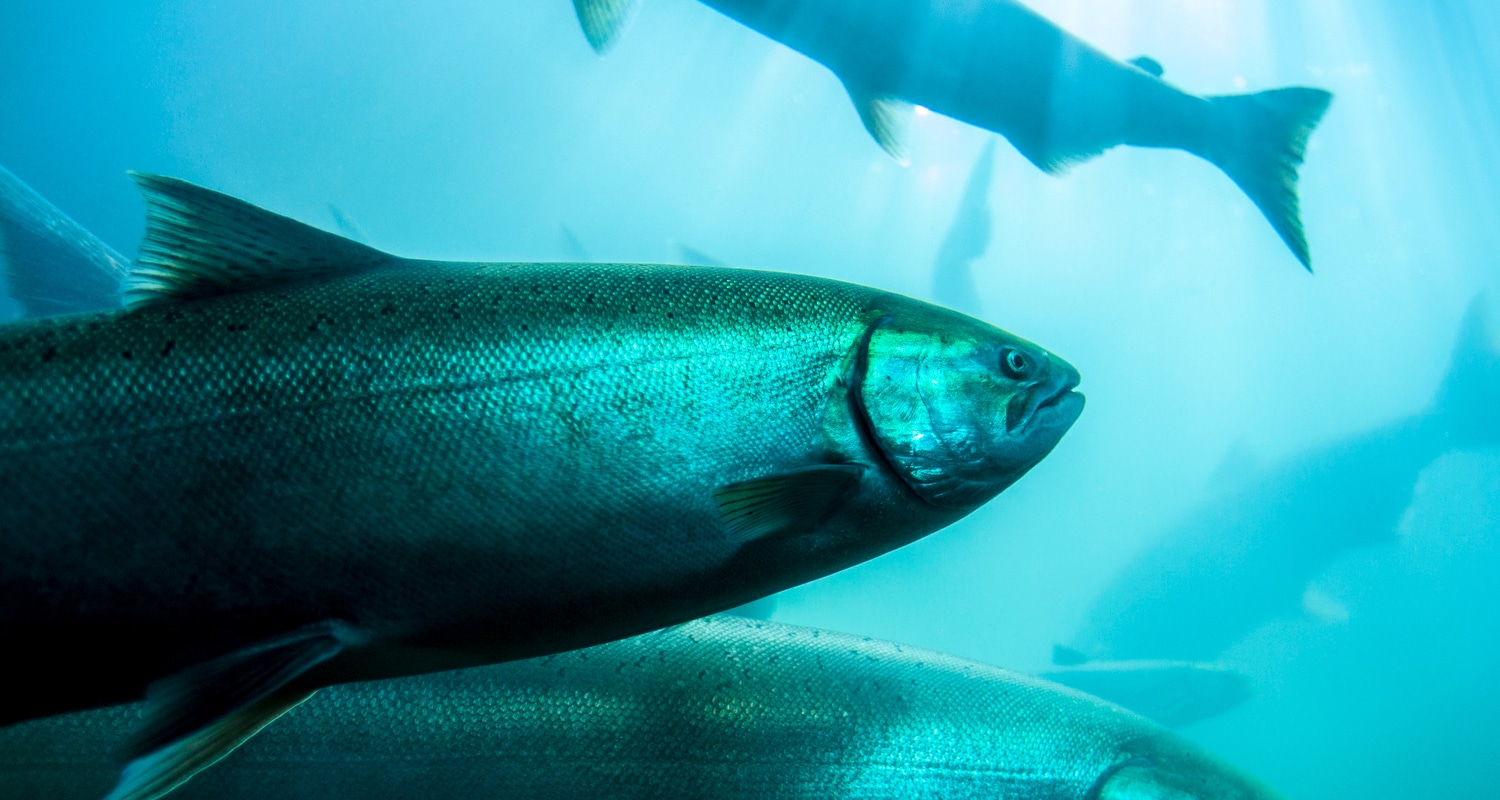
[tldr]
- Farm-raised salmon is more likely than wild-caught to contain contaminants, like carcinogenic dioxins and PCBs.
- Wild caught salmon has a healthier ratio of anti-inflammatory omega-3 fats to inflammatory omega-6 fats, as well as an overall better nutritional profile.
- Farmed salmon is not sustainable and may harm the environment by spreading disease to wild-caught fish and encouraging overfishing.
[/tldr]
Salmon has sealed its superfood status with its sky-high concentration of omega-3 fatty acids, so picking up a few filets on your next grocery run should be a no-brainer. But when you arrive at your fish counter, you may face a choice. Do you pick up the more affordable farm-raised salmon, or shell out for the slightly pricier wild salmon?
“While there are pros and cons to wild and farmed fish, you will be getting a more nutritious end product with wild salmon,” says nutritionist Kelly Schmidt, RD, author of “What’s the Deal With Paleo and Primal Eating?” And wild-caught salmon’s nutritional advantages are just the beginning. Keep reading to find out why you should avoid farm-raised salmon and eat wild salmon instead.
Farm-raised salmon has more dangerous contaminants than wild salmon
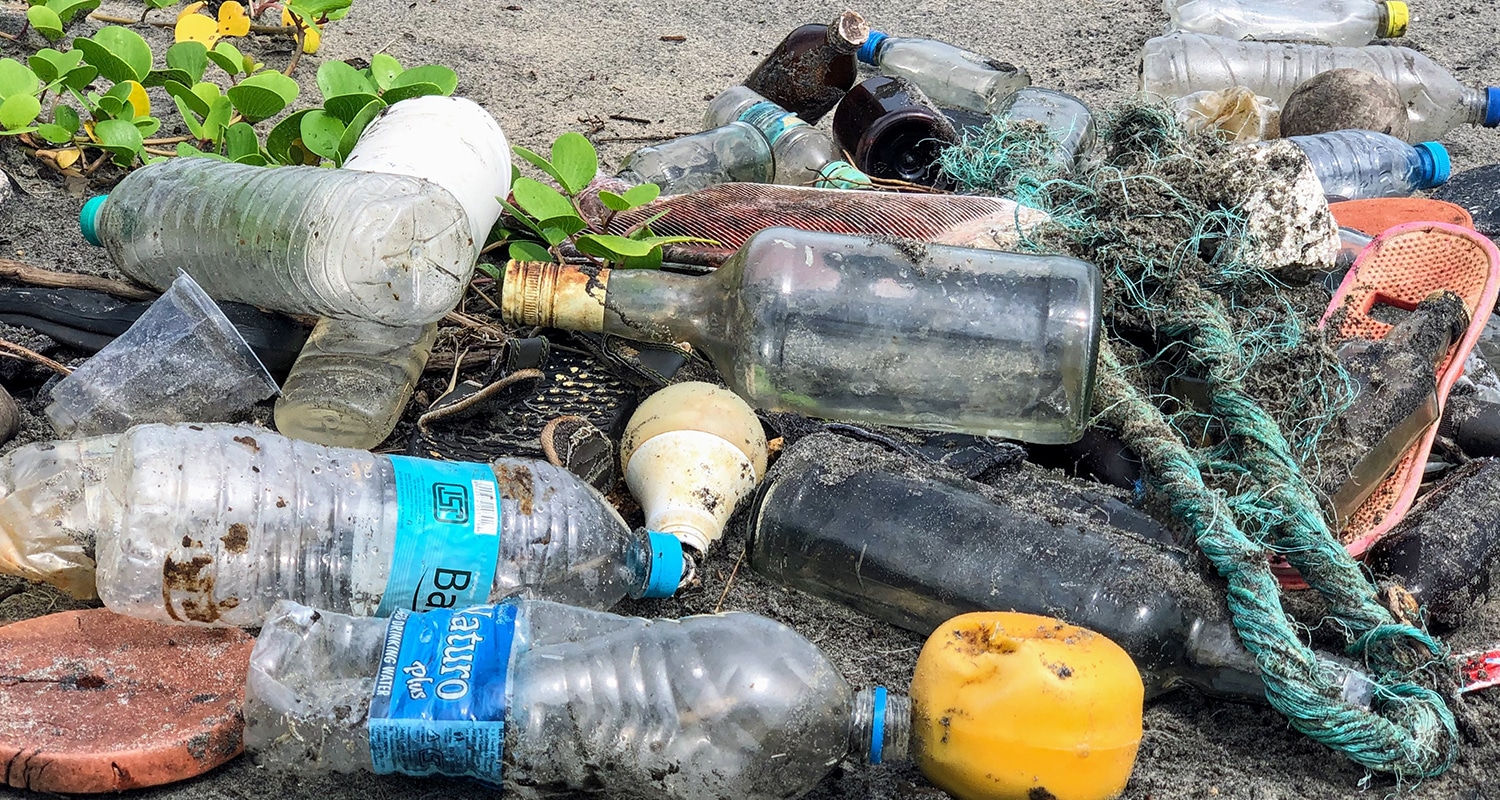
Another particularly pernicious contaminant found in farm-raised salmon is polychlorinated biphenyls (PCBs),[ref url=”https://www.epa.gov/pcbs/learn-about-polychlorinated-biphenyls-pcbs#what”] a chemical used in paint and plastics. The levels of PCBs were nearly 10 times higher in farmed fish than wild-caught fish, Schmidt says, referencing widely cited research from 2004.[ref url=”https://www.ewg.org/research/pcbs-farmed-salmon”] Too many PCBs are bad news for several reasons. One study found a correlation between dietary exposure to PCBs and increased stroke risk in women.[ref url=”https://onlinelibrary.wiley.com/doi/full/10.1111/joim.12194″] Other literature has pointed to a connection between the persistent organic pollutants like the ones found in farmed salmon, and insulin resistance, obesity,[ref url=”https://www.ncbi.nlm.nih.gov/pmc/articles/PMC3179488/”] and type 2 diabetes.[ref url=”http://archive.foundationalmedicinereview.com/publications/16/4/301.pdf”]
Wild salmon has a better ratio of good-to-bad fats than farmed salmon
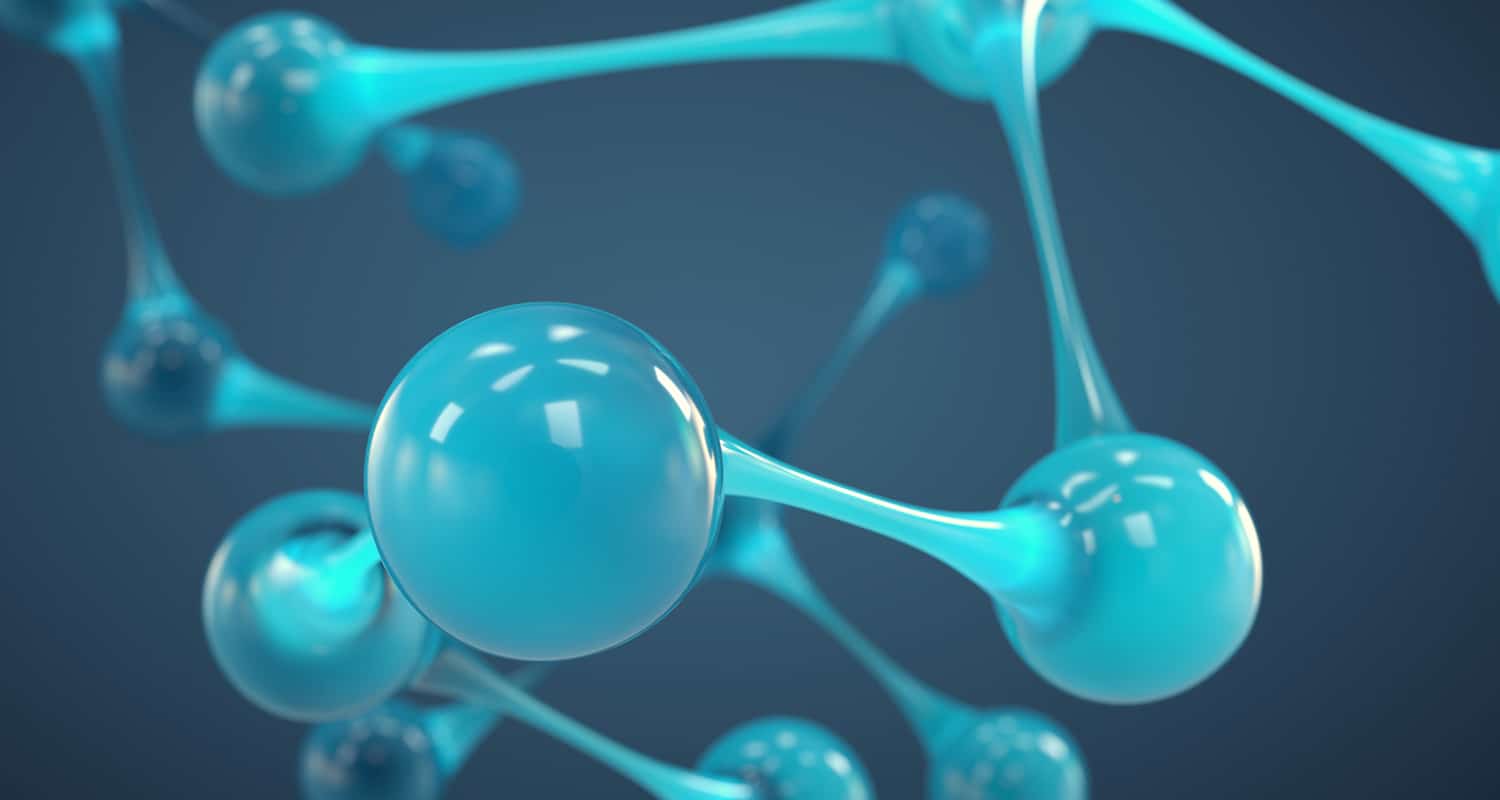
Farmed salmon isn’t as nutritious as wild salmon overall
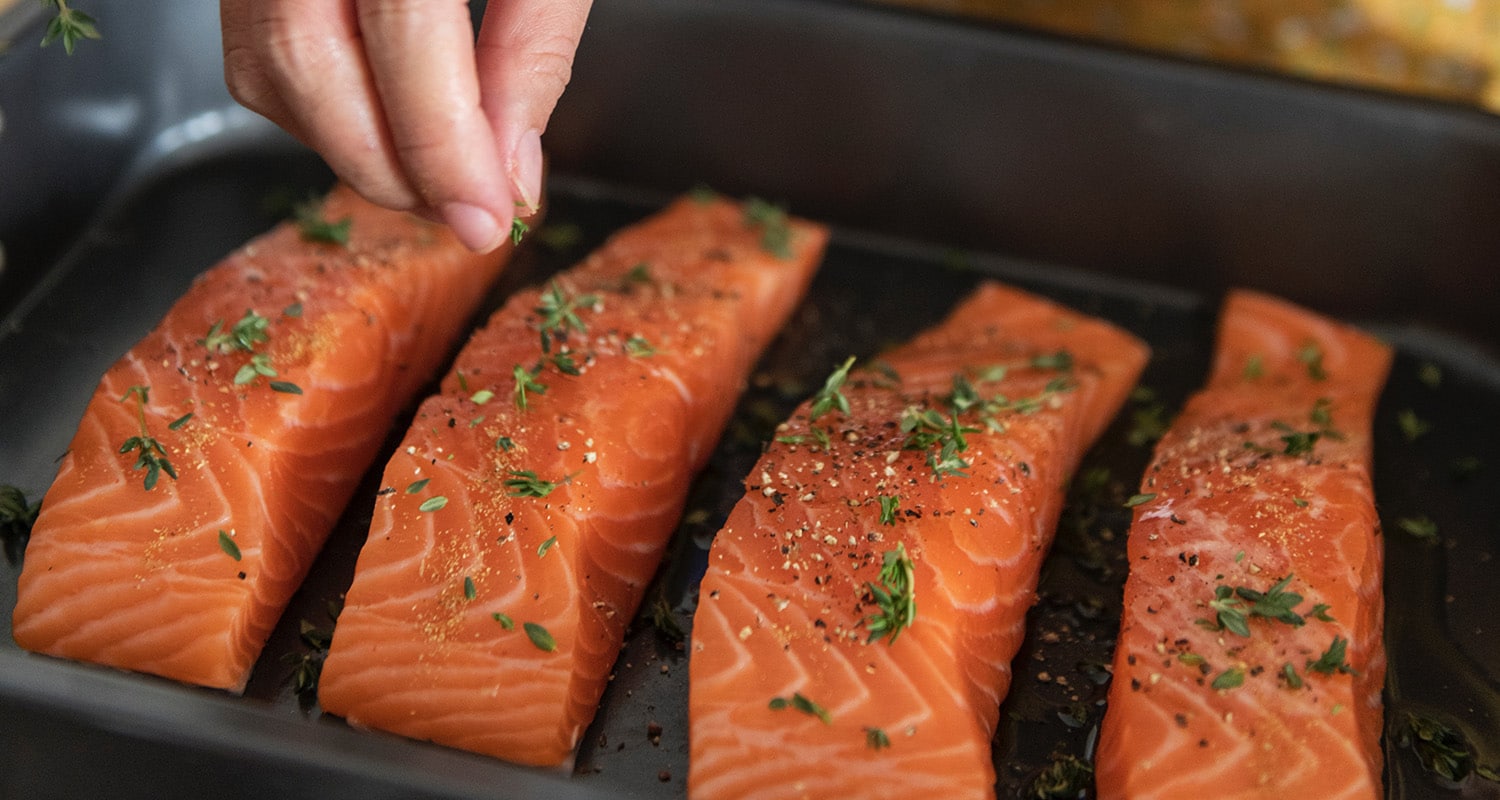
Plus, wild salmon contains the antioxidant astaxanthin (it’s what makes salmon meat appear dark pink). This anti-inflammatory molecule has a host of benefits, including possibly improving muscle endurance.[ref url=”http://www.cyanotech.com/pdfs/bioastin/batl28.pdf”] Wild salmon get their fill of the antioxidant by chowing down on astaxanthin-rich plankton, while farmed salmon only get a knockoff version that’s created from petrochemicals like coal.[ref url=”https://microbialcellfactories.biomedcentral.com/articles/10.1186/1475-2859-7-3″]
Farmed salmon is more likely to be affected by pollution, parasites, and disease
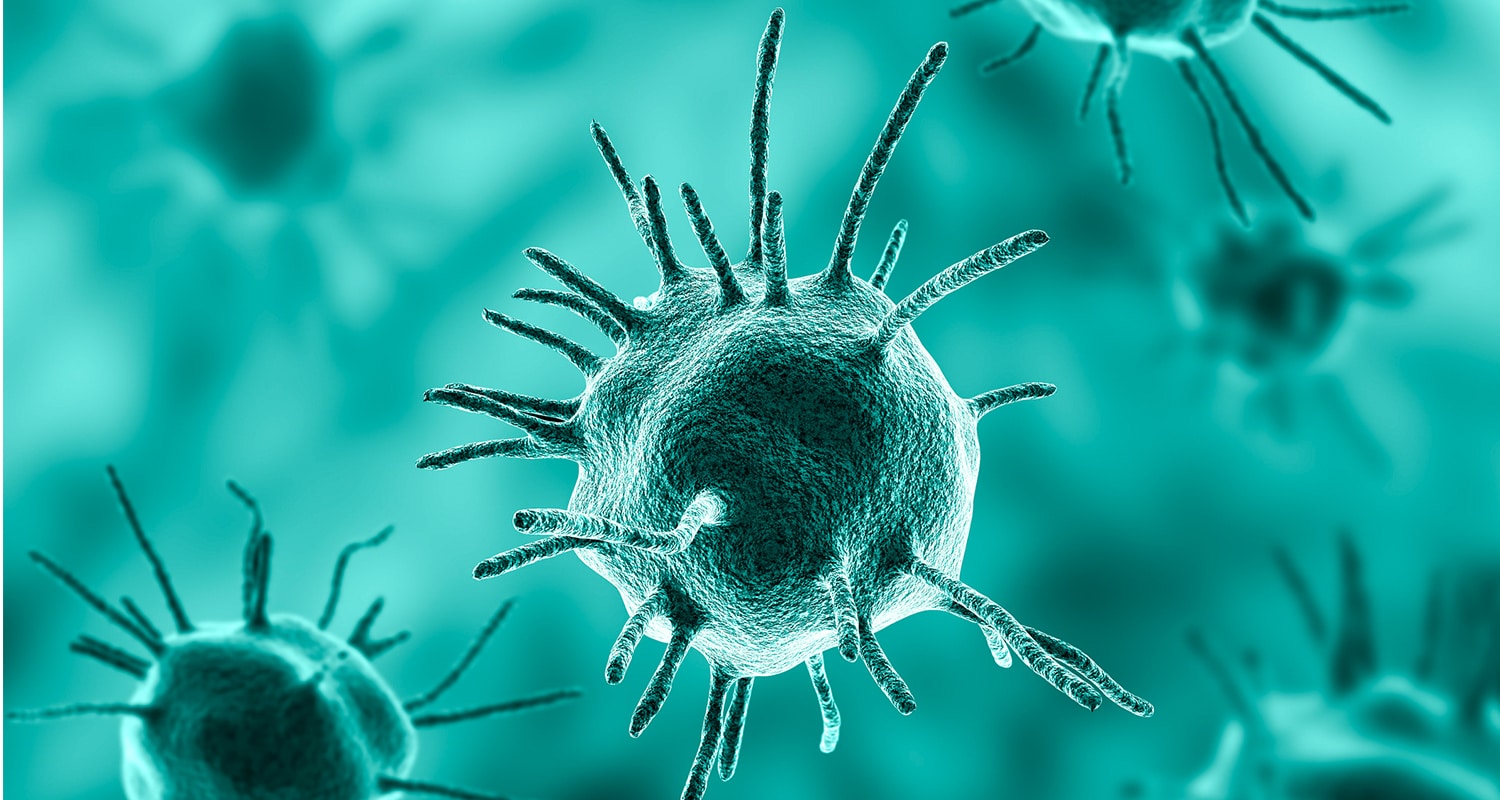
Farmed-raised salmon are bad for the environment
While you might think that farmed salmon helps solve the problem of overfishing, consider this: Farm-raised salmon feeds on meal and oil from smaller wild-caught fish, which may result in more fish being removed from the ocean overall.[ref url=”https://oceana.org/blog/here%E2%80%99s-why-eating-farmed-salmon-doesn%E2%80%99t-help-wild-salmon”] In addition, escaped farmed salmon also disrupt the ecosystem by threatening to spread pathogens, like sea lice, to wild salmon population.[ref url=”https://www.watershed-watch.org/wordpress/wp-content/uploads/2011/02/Price_et_al-2011.pdf”] Another consequence is the alarming disappearance of British Columbia’s salmon population, which experts believe can be attributed to the spread of a virus stemming from Norwegian salmon farms. Worse, the negative impact farm-raised salmon has on the wild salmon population may echo well into the future. As escaped fish breed with wild-caught fish, they may genetically alter future generations of wild salmon.[ref url=”https://watermark.silverchair.com/54-6-998.pdf”] In other words buying wild salmon over farmed salmon could have a ripple effect that extends well beyond your own health.
Don’t have time to read the article? Give it a listen instead.








